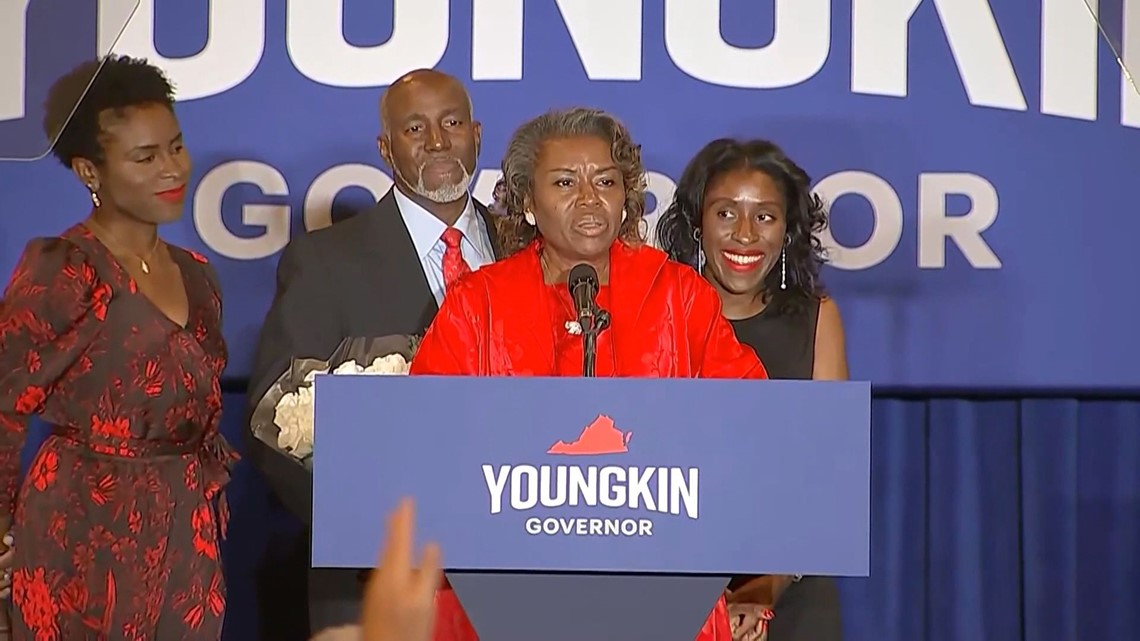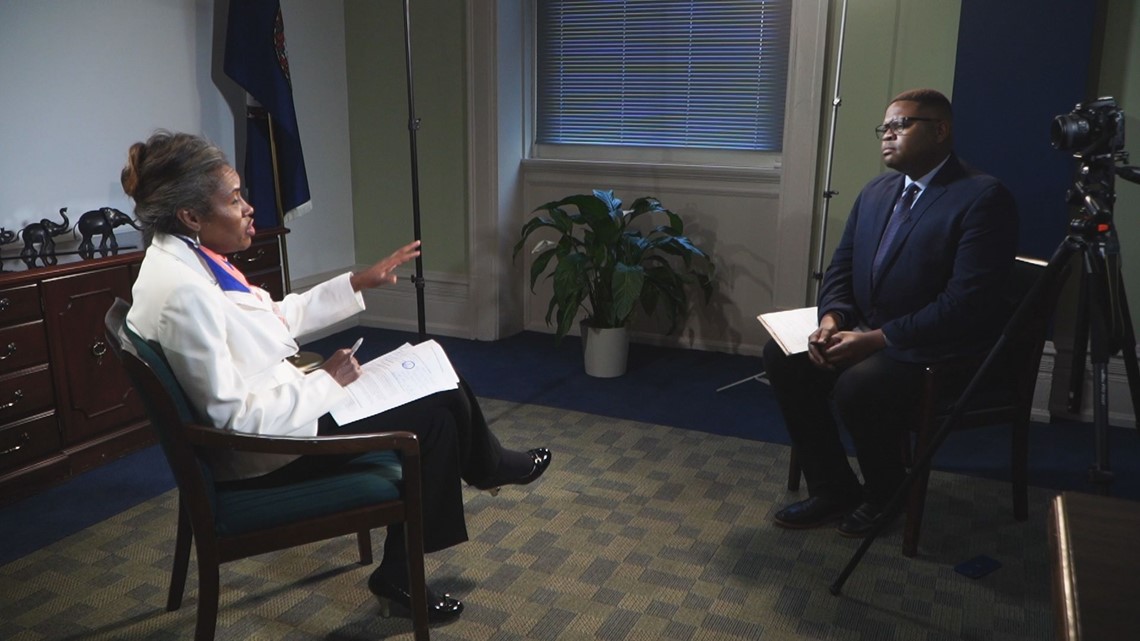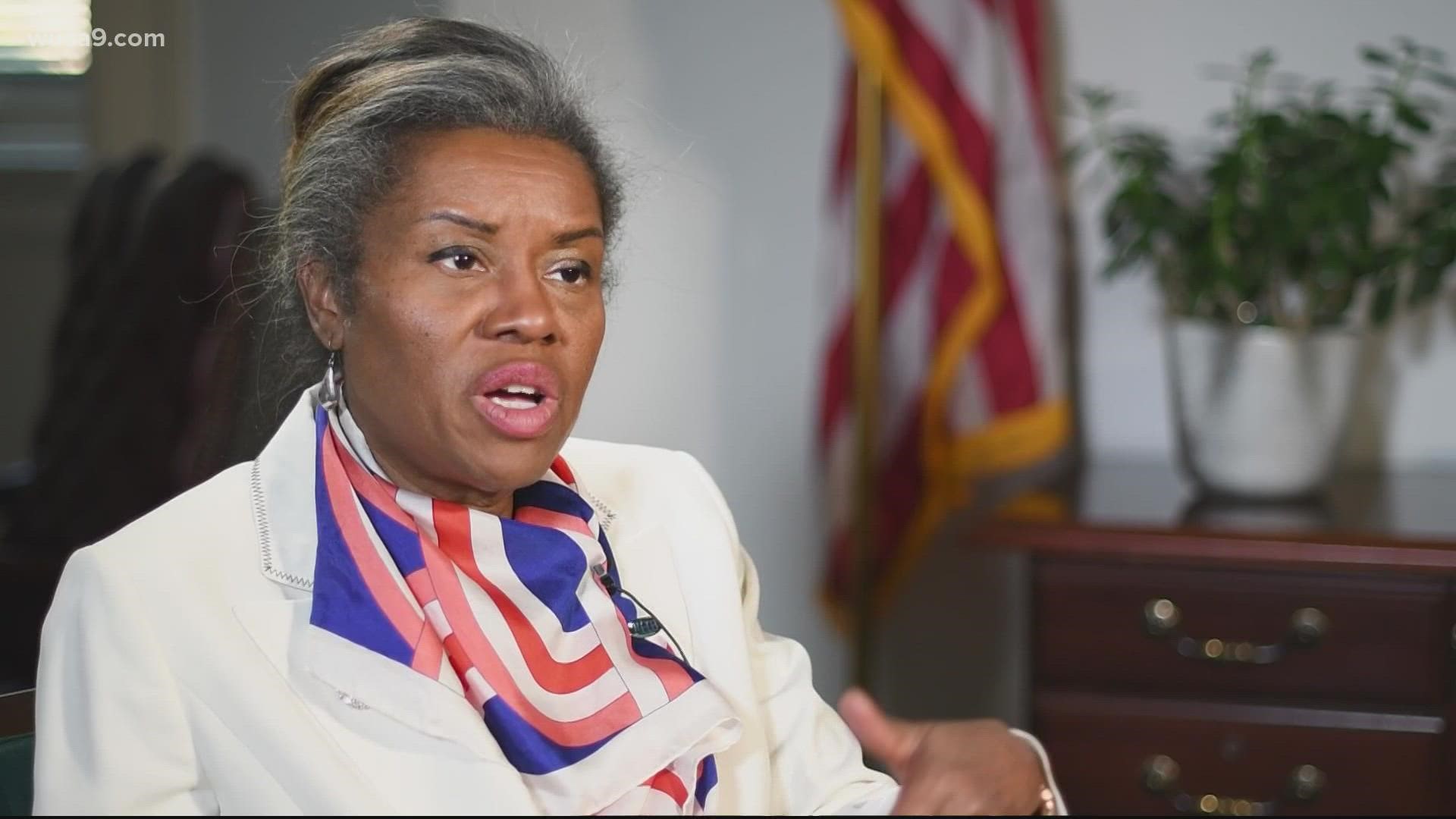RICHMOND, Va. — Now several weeks into her new role as lieutenant governor of Virginia, Winsome Earle-Sears said the new administration is settled and committed to delivering on promises made during a contentious and lengthy campaign.
“It feels good,” said Earle-Sears when asked how things were going weeks after being sworn into office in Richmond. “They tell me that I’m having fun and I’m trying to figure out if it's real fun.”
Earle-Sears said she and her team are getting into a routine with early morning appearances and every day at noon presiding over the state senate as its president.
As the first Black woman elected to statewide office in the Commonwealth, Earle-Sears acknowledges the significance but she is quick to pivot to the work that lies ahead for her and Virginia Gov. Glenn Youngkin.


“'Do you know what you’ve won?'” she recalls she said to herself on election night. “It was an awe [moment] for me. But then it was, 'OK. I’ve won. Let’s go.'”
Earle-Sears was born in Kingston, Jamaica, and immigrated to the United States at the age of 6.
“My father came [to The United States] with only a $1.75. He took any job he could find and put himself through school and now he's comfortably retired,” she said.
Earle-Sears is an advocate for education. She served on the state's education board. She supports historically black colleges and universities (HBCUs) and believes competition is the best way to improve performance.
"I ran because I wanted to do something about education. So, that our children would have a hope and a future," she explained.
The mother, wife, and Marine often credits her family for her success. During the inauguration, Earle-Sears even donned a long, fur coat that once belonged to her aunt.
“She helped raise me and I put it on for her,” she said of her aunt who passed away in Jamaica last year.


Earle-Sears is proud of her Jamaican-American heritage and the work the administration has done thus far. Hours after being sworn in, Youngkin signed a series of executive orders addressing many cornerstone issues from the campaign like parental choice and a rollback of mask mandates in schools. Executive Order One, for instance, banned instruction of critical race theory (CRT) and other divisive topics in schools.
"So I keep hearing that critical race theory is not taught in schools," she said. "They may not use the term critical race theory but it’s there. It's semantics and these word games help no one.”
Earle-Sears pointed to a signed 2019 service agreement between The Equity Collaborative, LLC and Loudoun County Public Schools as an example of CRT being taught in Virginia schools. She claimed the agreement showed administrators hired consultants to teach CRT to its students.
In a statement to WUSA9, LCPS denied the allegations. A spokesperson said CRT is not part of the state’s curriculum and added that the district did not hire consultants to teach CRT. A statement from the superintendent of LCPS last March further explained the contract was related to an equity assessment and provided training for LCPS staff — not students. The equity assessment examined the experience of students, parents, educators, and staff based on social and cultural factors and their race.
Although critical race theory has generated considerable emotion, few understand what CRT is all about. Critical race theory is a scholarly concept that suggests racism is not just the product of individual bias/prejudice but something that is embedded in our legal systems and policies.
“We have to teach the good, the bad and the ugly,” she said. “Let's teach the children to understand, 'Look where we are. We have overcome. No matter what life has thrown at us we just keep overcoming.'"
Masks in schools is another issue that has generated strong opinions.
The administration is locked in a legal battle with seven school districts over another executive order that allows parents to decide whether or not students wear masks in school. Virginia's Supreme Court will decide the matter and Youngkin has asked parents to follow the rules of their local school district until the matter is resolved.
But like any new administration, Youngkin and Earle-Sears have to find their legislative footing. With Democrats in control of the senate, meeting some of their legislative goals will be a challenge.
“They say politics is the art of the possible. So, you negotiate,” she said.

